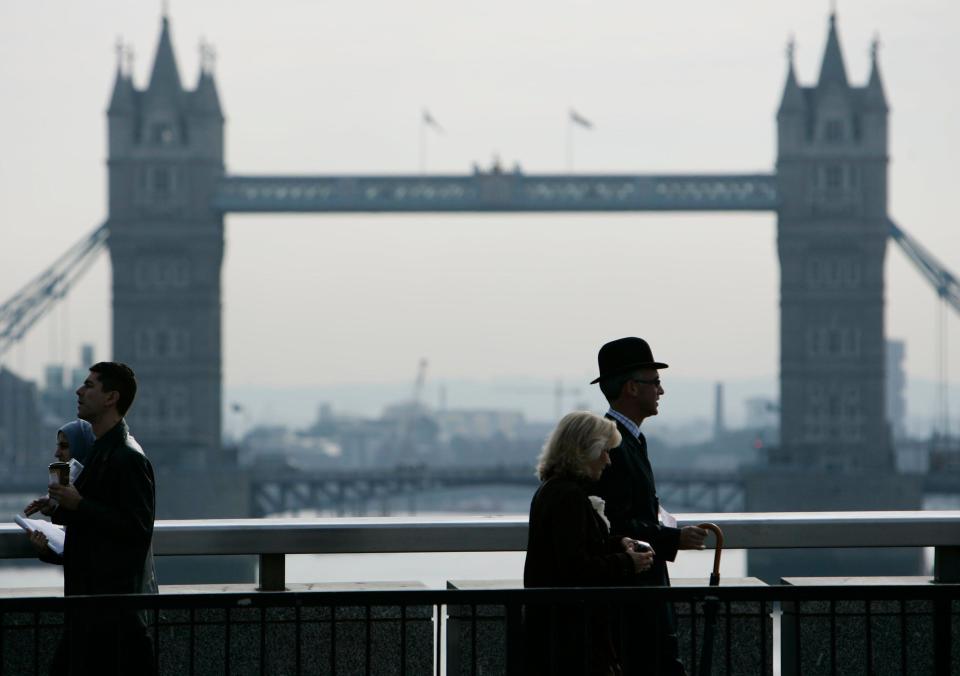
The FTSE 100 (^FTSE) underperformed against its European peers on Wednesday as the UK government surplus hit a record £16.7bn ($21.05bn) in January.
According to the Office for National Statistics (ONS), the British government borrowed £9.2bn less than official forecasts so far this financial year, giving chancellor Jeremy Hunt potential room for tax cuts in his budget next month.
The £96.6bn borrowed so far is also £3.1bn lower than the same point in the first ten months of the previous fiscal year. But City economists had expected an even larger surplus of £18.7bn.
Michal Stelmach, senior economist at KPMG UK, estimates Hunt could have £21bn of headroom for tax cuts in March’s budget.
Read more: Trending tickers: Nvidia, HSBC, Glencore, BAE Systems
Pierre Veyret, technical analyst at ActivTrades, said: “Shares opened lower in Europe on Wednesday, failing to clear historical resistances for a second time, as investors face patchy corporate results and brace for more macro developments from the US in the afternoon.
“Despite encouraging results from big corporations such as Carrefour yesterday evening, investors also have to face worries arising from the banking sector, especially after HSBC Holdings Plc published another significant drop in earnings.”
“While the overall appetite for equity markets remains alive, this mixed picture regarding corporate results prevents the market from breaking its recent record in the short term.
Follow along for live updates throughout the day:
Live18 updates
-
-
All eyes on Nvidia this evening
Nvidia (NVDA) is set to release its latest financial results after Wall Street closes today, and stakes are high thanks to its share price more than tripling last year amid AI enthusiasm.
The chip maker, which dominates the market for data centre AI chips, is expected to announce sales revenues of around $20bn (£15.86bn) in the fourth quarter and earnings per share of $4.60. This compares to just around $6bn in sales a year ago, and EPS of just 88 cents.
A miss in earnings or lower forward guidance is likely to cause a wave of profit taking in the technology sector and also drag the broader market. But a stronger than expected report could add to the upward momentum and draw in more investors who are already experiencing some degree of FOMO.
Neil Wilson, chief market analyst for Finalto, said:
“Signs of tension were evident yesterday as NVDA dropped more than 4% and dragged the rest of the market south.
“At 30x earnings there is little room above and the market is a tad worried about a 50% YTD gain unravelling on earnings – profit taking I guess you would call it. I still think there is a material chance that 2025 estimates are revised higher though.”
-
Petrol prices rise 3p in three weeks
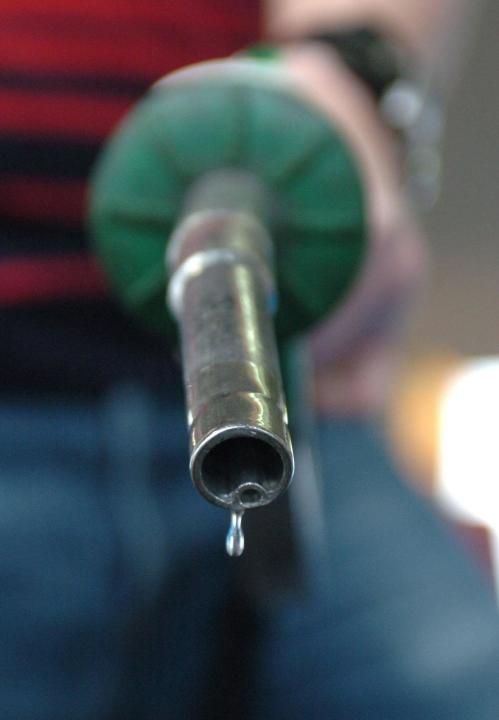

A person using a petrol pump (Danny Lawson, PA Images) Average fuel prices have risen by more than 3p per litre in three weeks, new analysis shows.
The RAC said the average price of a litre of petrol increased by 3.2p from 140.0p on January 29 to 143.3p on Monday.
RAC fuel spokesman Simon Williams said:
News that fuel prices have bottomed out and are now on the rise again is bad news for drivers, and possibly the economy and future inflation rates, too.
While we’re not expecting prices to shoot up dramatically, it appears that oil is trading up, which in the absence of a stronger pound, means wholesale fuel costs more for retailers to buy in. The result is higher prices at the pump and more expense for the every-day driver.
The Red Sea attacks by Houthi rebels, which are forcing tankers to avoid the Suez Canal and instead go round South Africa’s Cape of Good Hope, are clearly playing their part, but so have global refinery maintenance closures, the start of America’s driving season and UK retailers buying more fuel stocks ahead of the Budget to protect against a possible fuel duty hike by the Chancellor.
-
Wall Street to open lower as dollar dips
Wall Street is set to open lower in an hour’s time as S&P 500 futures (ES=F), Dow futures (YM=F) and Nasdaq futures (NQ=F) are all in the red.
It comes as the dollar dipped slightly in early trading, with investors taking profits ahead of the release of the January Fed minutes.
Ricardo Evangelista, Senior Analyst at ActivTrades, said:
“After reaching a multi-month peak the previous week, the greenback has been ceding ground against other major currencies as the impact of the Fed’s January meeting fizzles out.”
“Even after the hawkish stance of Jerome Powell and his peers, many traders still hope that the central bank may initiate rate cuts within the first half of the year. These same traders are now eagerly awaiting the latest insights from the central bank minutes.”
“Any indications aligning with the Fed’s hawkish message at the end of January could bring to an end the recent dollar weakness and usher in renewed gains.”
-
Discount store spend jumps 41%
Discount store spend in the UK has jumped 41% as Brits offset the cost-of-living crisis by turning to bargains.
According to Nationwide’s Spending Report, consumers spent £7.5bn in January, a 3% increase on last year, while transactions were up 4% year-on-year as the impact of the cost of living continues to bite.
Many are turning to bulk buy and discount retailers – from Poundland and B&M to Temu and eBay – in a bid to save money at a time essential costs continue to increase. It comes as many people have also switched to cheaper supermarkets to make savings, with retailers like Lidl and Aldi seeing annual increases in spend of 10 per cent and three per cent respectively.
The data correlates with the growth of the UK’s Value, Discount, Variety Stores and General Merchandise Retail Market, which is forecast to grow at a rate of more than four per cent until 20272 as a result of the cost-of-living crisis.
-
London’s iconic BT Tower to be turned into hotel
The BT Tower in London has been sold by the telecoms giant to MCR Hotels for £275m.
Tyler Morse, chief executive and owner of MCR Hotels, said it would develop plans to turn the site into an “iconic hotel”, adding his company was “proud to preserve this beloved building”.
MCR Hotels are the third-largest hotel owner-operator in the US.
Brent Mathews, property director at BT Group said:
The BT Tower sits at the heart of London and we’ve been immensely proud to be the owners of this important landmark since 1984.
It’s played a vital role in carrying the nation’s calls, messages and TV signals, but increasingly we’re delivering content and communication via other means.
This deal with MCR will enable BT Tower to take on a new purpose, preserving this iconic building for decades to come.
-
Heathrow returns to profit for first time since pandemic
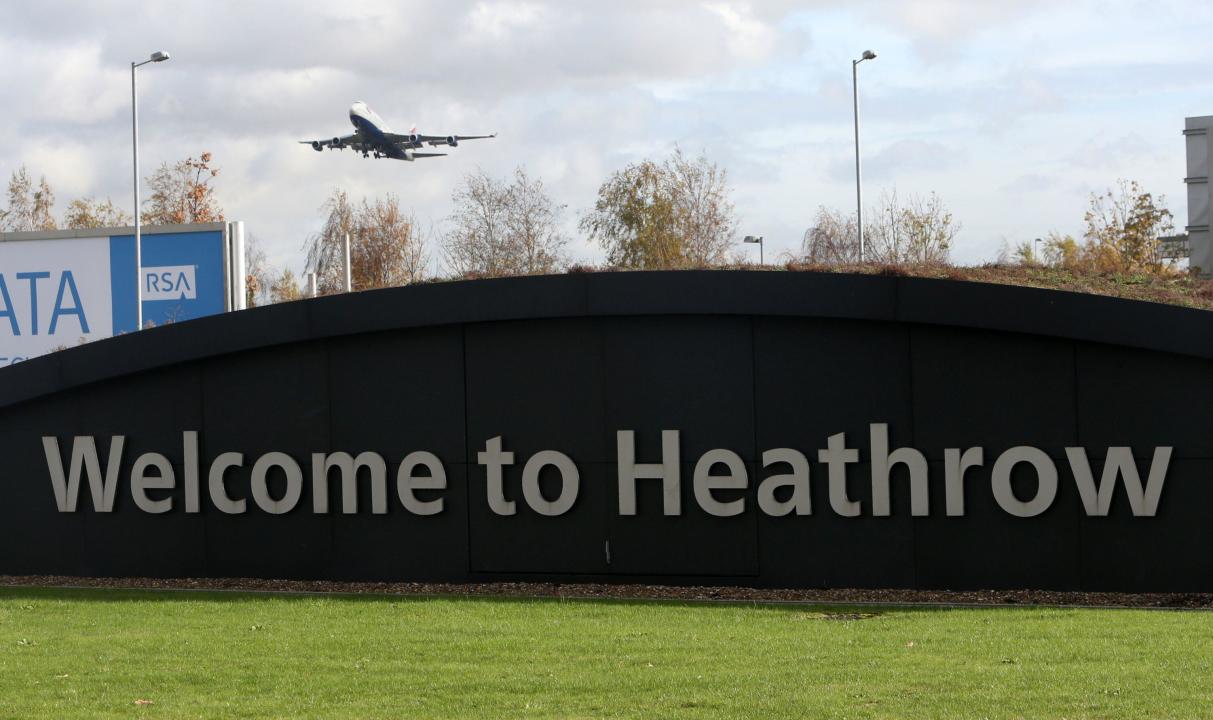

Heathrow has returned to profit for the first time since the pandemic thanks to a bounce-back in international travel (Steve Parsons, PA Images) Heathrow Airport has returned to profit for the first time since the pandemic thanks to a recovery in the travel industry.
Europe’s busiest airport posted an adjusted profit before tax of £38m last year after a strong performance in the run up to Christmas.
Passenger numbers rose to 79.2 million, the third highest year in Heathrow’s history.
However, bosses warned will need to save £400m over the next three years to remain profitable due to a reduction in the charges it can impose on airlines, enforced by the aviation regulator.
It said: “Airport charges were reduced by 20% in real terms at the start of 2024 in line with the CAA’s H7 settlement, which means maintaining even a small profit will require us to close a £400m gap with efficiencies and investment trade-offs over the next three years.”
Thomas Woldbye, new chief executive, who replaced long-standing boss John Holland-Kaye in October, said:
2023 was a good year for Heathrow from a challenging start to a great finish – We delivered much improved service for our customers, and managed to turn a small profit after three consecutive years of losses.
That’s a great platform to build on, although in 2024, we are expected to deliver even further improved service to more passengers, but with airport charges cut by 20pc in real terms.
We will have to pull every lever to become more efficient and make tough choices on where we spend and invest our money to overcome the huge cost challenge set by the CAA and remain profitable over the next three years.
-
Sick days cost UK businesses £5.6bn per year
Research by Furniture At Work shows that businesses pay £5.6bn per year for sick days, with absences rates hitting 7.8 days in the UK last year on average.
Some 350,000 employees are expected to call in sick in February – the highest month of the year – with London, Reading and Edinburgh paying the most per absence.
The research also revealed that more than half of Brits (56%) admitted that they have “pulled a sickie”, just to enjoy a relaxing day off work.
-
Aldi to create 5,500 new UK roles
Aldi has announced plans to create 5,500 new roles in the UK this year.
The German supermarket chain will be seeking to recruit for a variety of positions, it said, including store assistants, managers and cleaners for new stores opening across the country.
Giles Hurley, chief executive at Aldi UK, said:
“Our colleagues work incredibly hard and are without a doubt a huge part of our success at Aldi. We continue to welcome more and more customers to Aldi stores every week, not just because of our unbeatable prices and British sourcing, but also our amazing colleagues.
“We are looking forward to welcoming even more colleagues up and down the country to Team Aldi during 2024 as we progress towards our goal of making affordable, quality food accessible to everyone.”
Aldi currently has more than 1,000 stores and employs more than 45,000 colleagues.
-
King Charles banknotes to enter circulation in June
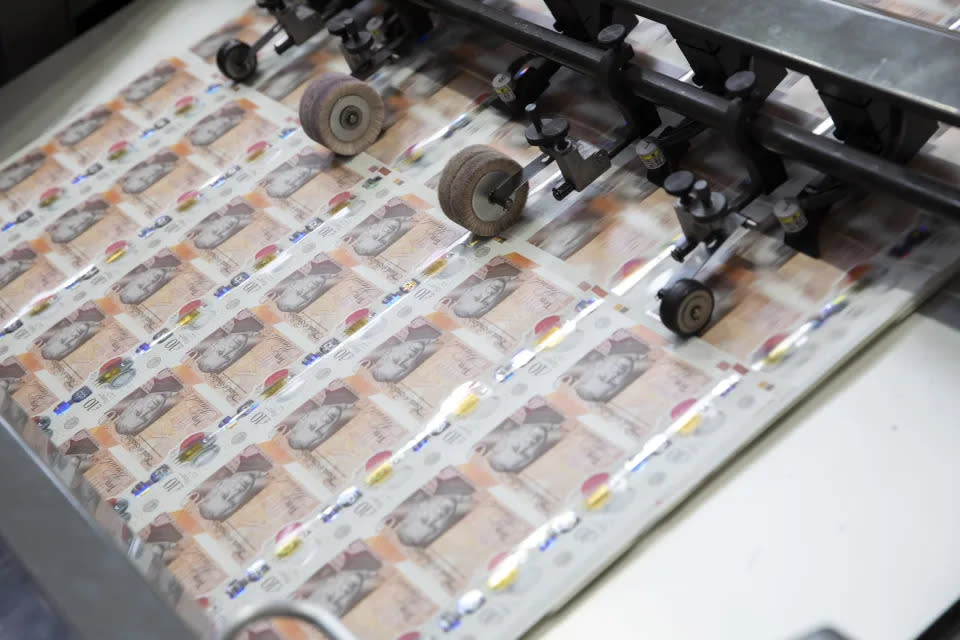

Britons should start seeing new banknotes featuring King Charles III in their wallets and purses as they enter circulation for the first time on 5 June 2024.
The portrait of the King will appear on existing designs of all four banknotes (£5, £10, £20 and £50), with no other changes to the existing designs.
The only difference being that the face of King Charles will replace that of Queen Elizabeth II.
This means that the new £5 will remain blue, the £10 note orange, the £20 purple and the £50 red.
In the banknotes, King Charles faces head on, looking straight out from the banknote, rather than being in side profile. He is also not wearing a crown, which has been tradition with past monarchs.
-
Inheritance tax receipts reach £6.3bn
The Treasury raked in £6.3bn in inheritance tax receipts in the ten months from April to January 2024 according to data released by HMRC this morning.
This is £400m more than in the same period just one year earlier, and demonstrates a continued upward trend of increasing inheritance tax bills.
While just 4% of estates are picking up the tab, the proportion of families affected is higher, and the freeze on inheritance tax thresholds combined with decades of increases in property prices is pushing the government’s inheritance tax-take on an upwards trajectory.
Wealth Club’s calculations suggest that for those picking up the ‘death tax-tab’, the average bill could increase to £238,000 this 2023/24 tax year, with over 30,000 families having to hand over part of their inheritance to the taxman.
This is a steep 11.2% increase from the £214,000 average paid just three years ago and a 14.2% rise in the number of estates paying the tax.
Nicholas Hyett, Investment Manager at Wealth Club said:
“The government seems to be rowing back on potential tax cuts at the March Budget. And with IHT an ever growing source of revenue, you can see why the Chancellor might find it difficult to cut this most unpopular of taxes. Any shortfall would mean higher tax or lower spending elsewhere.
“The good news is that with a little planning, there are a number of perfectly legitimate and easy solutions to reducing your inheritance tax liability. For example, pensions can be passed on relatively tax efficiently, and the nil-rate residential band helps pass on properties to direct descendants.
“In fact, the greatest IHT threat probably comes from where you least expect it: your ISA. While tax efficient in so many way, ISAs are not IHT free, so up to 40% of your long-term savings could end up with the taxman.”
-
How NHS waiting lists could affect your travel insurance
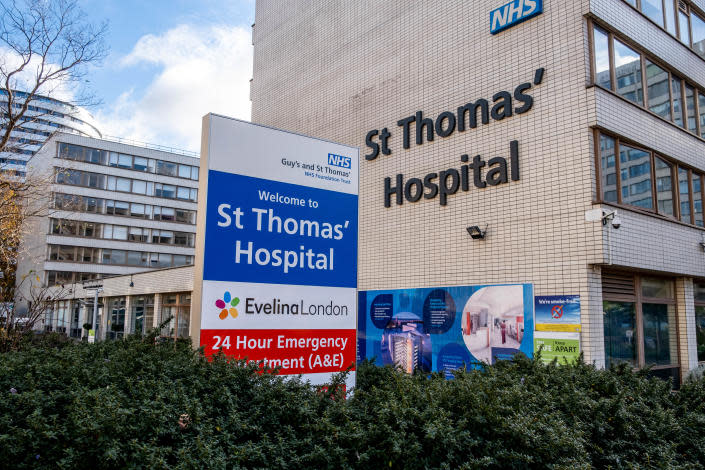

There are currently 7.6 million people on NHS waiting lists, which is alarming on so many levels. It’s not just the fact that it raises the risk of people’s health deteriorating while they wait to be seen, or that delays in care are contributing to record numbers of people who are too sick to work.
It could also leave you tens of thousands of pounds worse off if you travel without considering the implications.
When you buy travel insurance, you’re asked whether you have any health conditions, and whether you’re waiting for any diagnostic investigations or treatment.
Pre-existing conditions are a headache, because you need to include everything that has affected you in the past, or it won’t be covered while you’re away.
This may seem obvious for chronic conditions like diabetes, but some people may not realise that it includes everything from relatively recent broken bones, to allergies, neurodiversity, high blood pressure, depression and anxiety.
The good news is that once you’ve answered a number of questions about your condition, you may still qualify for affordable cover – especially if you have never been hospitalised or been forced to cancel travel plans because of it.
-
HSBC record profits: Positive Money response
Fran Boait, co-executive director at Positive Money, said:
“It’s safe to say HSBC didn’t earn these record profits by providing a better service to customers, given that it closed a quarter of its bank branches last year. These are unearned windfall profits from higher interest rates.
“What we’re seeing is banks profiteering from poverty, which tens of millions of households are now living in, in part due to the same high interest rates which have enriched the banks.
“To rebalance the unequal impact of high interest rates, the government must use a windfall tax on bank profits to pass all that excess money back to the struggling households it was stripped from.”
-
HSBC slumps after $3bn China writedown
HSBC fell out of favour with investors on Wednesday despite it revealing a near 80% jump in pre-tax profits which rose to $30.35bn (£24bn) in 2023, driven by high interest rates.
Shares slumped more than 7% as Europe’s largest bank missed forecasts due to a $3bn (£2.3bn) impairment from its stake in a Chinese bank, the Bank of Communications.
The bank’s 2023 pre-tax profit jumped 78% to $30.35bn, while net profit rose 56% to $22.43bn. The steep rise in full-year earnings prompted the bank to announce fresh share buybacks of up to $2bn.
The London-headquartered bank also announced a fourth interim dividend of $0.31 per share, resulting in a total for 2023 of $0.61 per share.
“Our record profit performance in 2023 enabled us to reward our shareholders with our highest full-year dividend since 2008, three share buy-backs last year totalling $7bn, and a further share buy-back of up to” $2bn, group chief executive Noel Quinn said.
In addition to three share buybacks totalling $7bn, Quinn said the bank returned $19bn to shareholders last year.
Read more: HSBC full-year profits surge fuelled by high interest rates
-
Debt interest bill falls by £28.9bn
UK government spending rose by £67.5bn in the first ten months of the financial year, hitting £944bn, however, this could have been much worse.
The Treasury managed to save £28.9bn over the period on debt interest payments as inflation fell back from 41-year highs experienced in October 2022.
Meanwhile, it spent £12.9bn less on subsidies, mainly because of the reduction in energy support costs.
It comes as Jeremy Hunt will present his annual budget on 6 March, aiming to cut taxes in order to boost the Conservative Party’s popularity ahead of the General Election Rishi Sunak is expected to call later this year.
Ruth Gregory, deputy chief UK economist at Capital Economics, says the chancellor has some wiggle room, but not enough for a big pre-election giveaway at next month’s Budget.
She said:
“January’s public finances figures delivered some much-needed good news for the chancellor in the lead-up to the Budget on 6th March.
“But we doubt this will pave the way for a big pre-election splash. We think the chancellor will be handed “headroom” of just £15bn (0.5% of GDP), limiting his ability to unveil big unfunded tax cuts if he wishes to adhere to the fiscal rules.”
-
UK posts record borrowing surplus in January
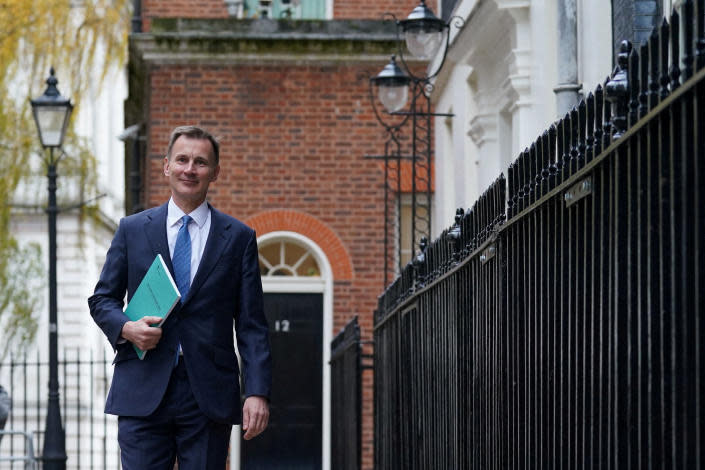

Jeremy Hunt has been handed a £9.2bn ($11.62bn) borrowing boost for his Budget next month as the UK posted its largest budget surplus for a January in at least 30 years.
The UK government has borrowed £9.2bn less than official forecasts had predicted by this point of the financial year, according tot the Office for National Statistics (ONS).
The £96.6bn borrowed so far is also £3.1bn lower than the same point in the first ten months of the previous fiscal year.
The ONS said there was a public sector net borrowing surplus of £16.7bn last month, more than double the surplus seen a year ago and the largest surplus since monthly records began in 1993.
Jessica Barnaby, ONS deputy director for public sector, said:
“January’s surplus is the largest in nominal terms since monthly records began in 1993, although borrowing in the year to January is only slightly lower than the same period last year.
“Tax receipts are always higher in January than other months owing to self-assessed taxes, which often leads to a surplus.
“Also, with recent reductions in the Retail Prices Index rate, interest payable on government gilts and without last year’s energy support schemes, overall expenditure was down on this time last year, despite increased spending on public services and benefits.
“As a proportion of gross domestic product, public sector debt is up on the year, and remains at levels last seen in the 1960s.”
Public sector net borrowing excluding public sector banks was £16.7 billion in surplus in January 2024.
This was more than double the surplus of January 2023 and the largest since monthly records began in 1993.
➡️ https://t.co/Hz0LLO7Kbi pic.twitter.com/iHQOT14JoY
— Office for National Statistics (ONS) (@ONS) February 21, 2024
-
Asia and US stocks
Stocks in Asia were mixed overnight as investors weighed up Beijing’s latest measures to boost the stuttering Chinese economy, as well as a slump on Wall Street.
The Nikkei (^N225) fell 0.3% on the day in Japan, while the Hang Seng (^HSI) was 1.6% in Hong Kong. The Shanghai Composite (000001.SS) advanced 1% by the end of the session.
It came as the People’s Bank of China said on Tuesday that it was lowering the five-year loan prime rate, used to price mortgages, from 4.2% to 3.95%. It was the largest reduction since the key rate was revamped in 2019.
Across the pond, the S&P 500 (^GSPC) fell 0.6% while the Dow Jones Industrial Average (^DJI) slipped 0.2%. The Nasdaq Composite index (^IXIC) fell 0.9% to 15,630.78.
The yield on the benchmark 10-year Treasury bonds fell to 4.27% from 4.28% late on Friday.
-
Coming up
Good morning, and welcome back to our rolling coverage of what’s moving markets and happening across the global economy.
Here’s a quick rundown of what’s on the agenda for today…
-
7am: Trading updates: HSBC, Rio Tinto, Glencore, BAE Systems
-
7am: UK public finances for January
-
11am: CBI industrial trends survey of UK manufacturing
-
12pm: US MBA Mortgage Applications
-
2pm: BoE policymaker Swati Dhingra gives a speech on ‘Recent BoE projections – key factors/judgements’
-
2.15pm: Treasury Committee to question forecasters about economic modelling ahead of Spring budget
-
3pm: Eurozone consumer confidence report for February
-
7pm: Federal Reserve releases minutes of its latest FOMC meeting
-
Watch: How does inflation affect interest rates?
Download the Yahoo Finance app, available for Apple and Android.











